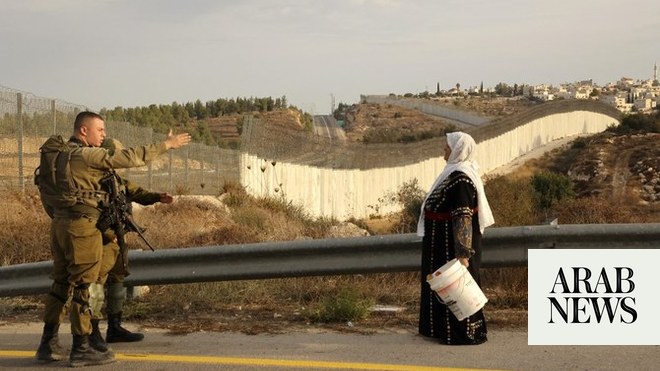
The prosecution claimed that the hotel gathering was a “secret meeting to organize an uprising,” in order to trigger a “chaos environment” in the country – a claim categorically denied by the defendants
ISTANBUL: Human rights activists, including a former head of Amnesty International’s Turkish branch, have been jailed by an Istanbul court on terror-related charges in a decision condemned as an “outrage” by fellow campaigners.
Amnesty International Turkey’s honorary chair Taner Kilic was sentenced to six years and three months in prison for “terror organization membership.”
Gunal Kursun from the Human Rights Agenda Association; Idil Eser, former executive director of Amnesty International Turkey; and Ozlem Dalkiran, former head of Amnesty International’s communications department, were each handed jail terms of one year and 13 months for “aiding a terror organization.”
Their lawyers said the motive behind the high-profile case, which concluded on Friday, was to silence and intimidate human rights organizations.
Amnesty International has described the case as a travesty of justice.
Idil Eser, a defendant in the case, told Arab News: “It is disappointing and legally concerning to be punished as a human rights defender for acts which are not criminal. It is not a crime to defend human rights. We hope that this conviction which is baseless in legal terms would be annulled at the appeal. It is crystal clear that all defendants in this case are not criminals, because there is not a crime at all.”
The defendants are now expected to appeal the verdict in the case dubbed the ‘Buyukada trial.”
Other human rights activists, including Nalan Erkem, lknur Ustun, Ali Gharavi, Peter Steudtner, Veli Acu, Nejat Tastan and Seyhmus Ozbekli, were acquitted.
The activists were arrested three years ago in a police raid on a hotel on Buyukada Island, near Istanbul, where they were taking part in a workshop. Police seized their computers and phones, and arrested the group on terror charges.
The prosecution claimed that the hotel gathering was a “secret meeting to organize an uprising,” in order to trigger a “chaos environment” in the country – a claim categorically denied by the defendants.
Members of the international community stood in solidarity with the accused and said that the case is politically motivated.
“Another disappointing court verdict against civil rights and civil society in Turkey. Not how we put our relations on a positive track. My thoughts are with imprisoned and families. Solidarity with democratic forces in Turkey!” tweeted Sergey Lagodinsky, chair of the EU-Turkey delegation at the European Parliament.
Dunja Mijatovic, the Council of Europe’s commissioner for human rights, voiced concerns that Turkey is targeting and silencing human rights defenders.
Andrew Gardner, Amnesty International’s Turkey researcher, who observed the hearing, said the verdict is an outrage based on absurd allegations without any evidence and is supported by a pro-government media smear campaign.
“It was a huge disappointment. It has been three years and 12 hearings so far. What we saw is that the court in its verdicts decided to stick with the claims of the government media in Turkey, rather than justice, reason and logic,” he told Arab News.
“We are not only disappointed for these human rights activists in the trial, but also for anyone who believes in justice and peaceful civil society activism in Turkey. But we won’t give up until all are acquitted and we will be campaigning for justice,” he added.
Later this month, prominent civil society figure and businessman Osman Kavala will mark his 1,000th day behind bars over allegations of terror and fomenting chaos in the country by funding human rights activism.
Erdal Dogan, the lawyer for Idil Eser, said defending human rights has never been easy in Turkey.
“However, in recent years, those who defend human rights have been demonized,” he told Arab News.
Dogan says a court decision to maintain the verdict will signify a move away from the modern legal and universal human rights systems.
“In that case, the regime will get out of hand and no civil and independent social monitoring will be applied,” he added.












